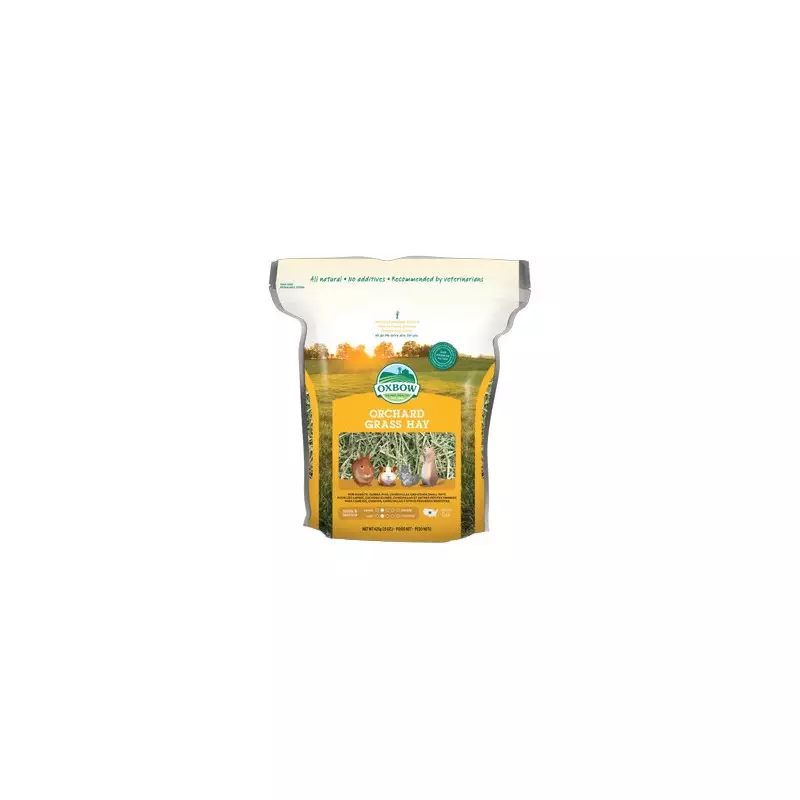

.....WHATSAPP ONLY ![]() 0808406035
0808406035
.....WHATSAPP ONLY ![]() 0808406035
0808406035


Pets love the sweet smell and taste of the green Oxbow Orchard Grass Hay, and that makes it a good addition to a herbivore's healthy meal plan.
Like other long-strand grass hays, the soft-textured Orchard Grass Hay is high in fiber, low in protein and supports the health of small herbivores by stimulating digestion, preventing obesity and making meals more attractive.
Mix Orchard Grass Hay with other Oxbow Grass Hay to create a sweet and nutritious combination
Ingrediants
100% Orchard Grass preservative and additives free. Loose hay contains limited stems, leaves, and seed heads.
Indications
Growing animals: Unlimited quantities
Mature animals: Unlimited quantities
Orchard Grass can be freely fed to rabbits, guinea pigs, chinchillas, prairie dogs and other herbivores as an alternative to Timothy, oat, hay, and bromine.
Free choice means that the feed is available at all times.
If they run out of what is given, you need to give them more!
Hay should not only be used for nutritional purposes, but also for mental stimulation and the promotion of natural foraging behavior.
Details
Orchard Grass is a green, fruity hay smell that many small animals enjoy.
To the inexperienced eye, it looks identical to a rat tail, but the seed heads have a different shape.
Orchard Grass is a cold season perennial herb with flat leaf blades.
The leaves vary in color from green to blue-green depending on the maturity of the plant.
The lower surface of the leaf is not shiny; and leaf sheaths may be somewhat rougher to the touch of Timothy.
Orchard Grass is recommended by veterinarians for small herbivores due to the nutritional content.
Orchard Grass can be mixed with other grass hays when feeding your pet.
This is encouraged because animals seem to like variety.
Mixing your grasses will encourage them to eat more hay, which is beneficial for the animal's health.
Hay is absolutely vital for the health of small herbivores.
Orchard Grass also provides a source of long strand fiber which is needed to improve digestive and intestinal functions by stimulating the digestive system.
When animals are fed hay at will, it promotes their natural chewing, which helps prevent molar spurs and other dental problems that are so common in these small herbivores.
No customer reviews for the moment.